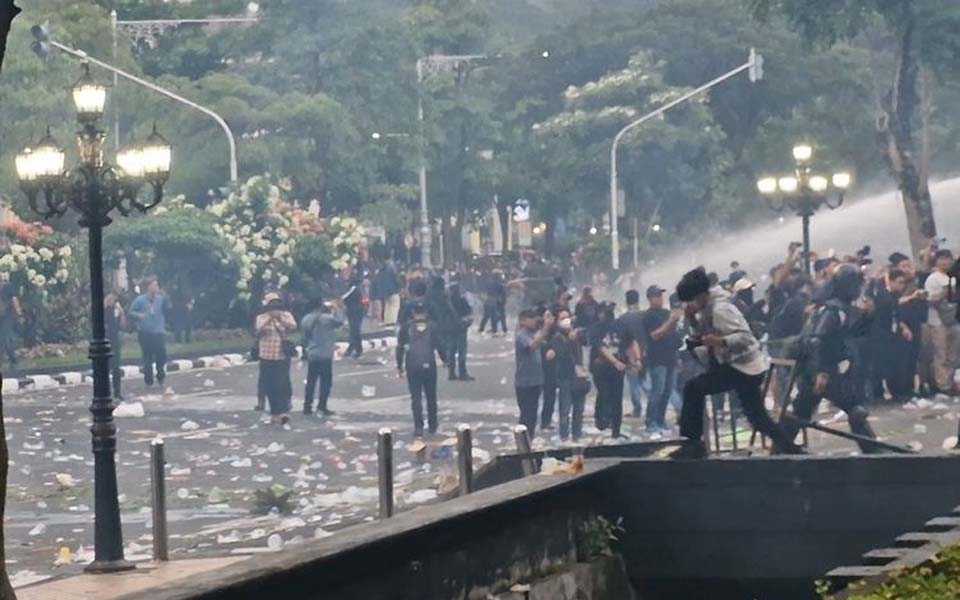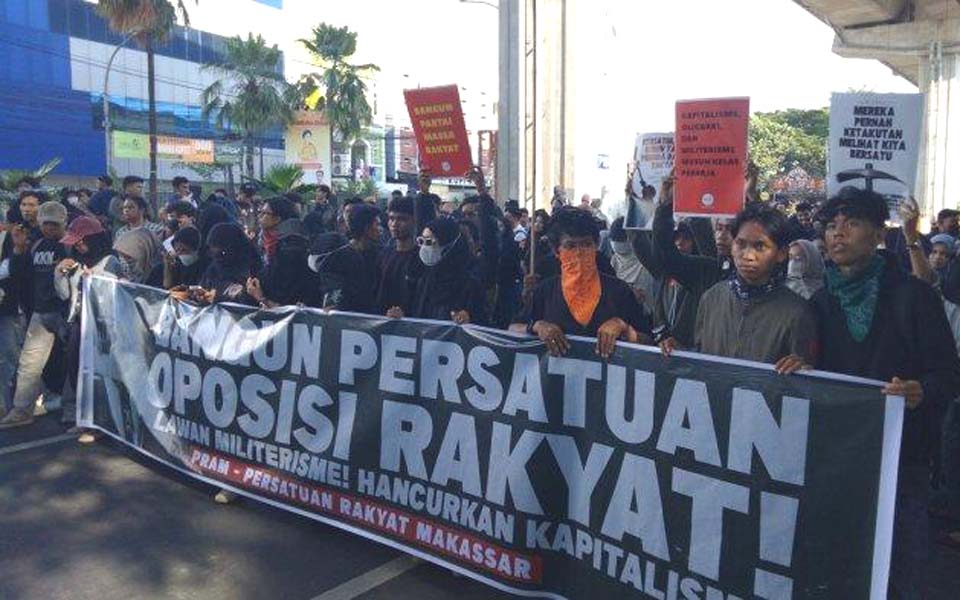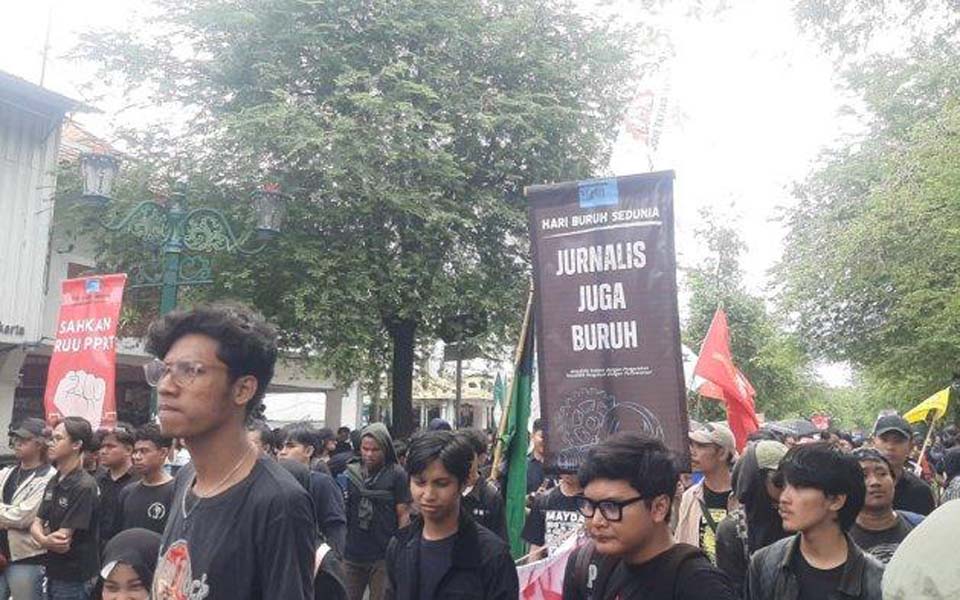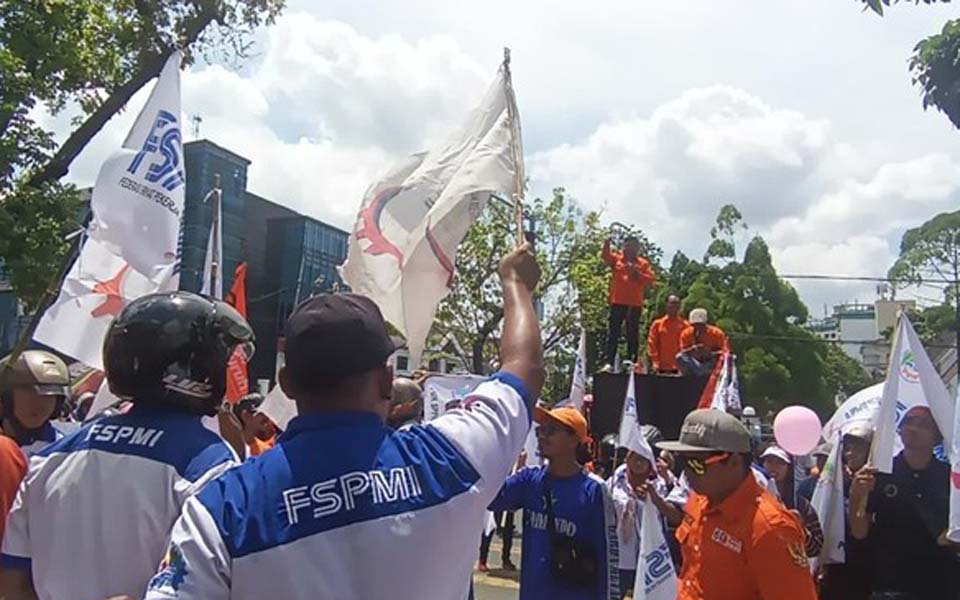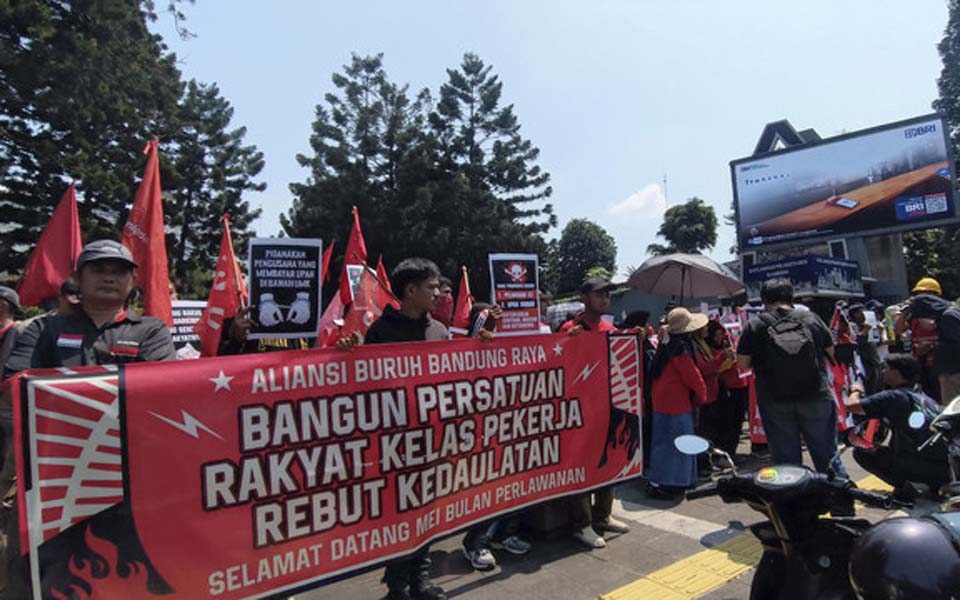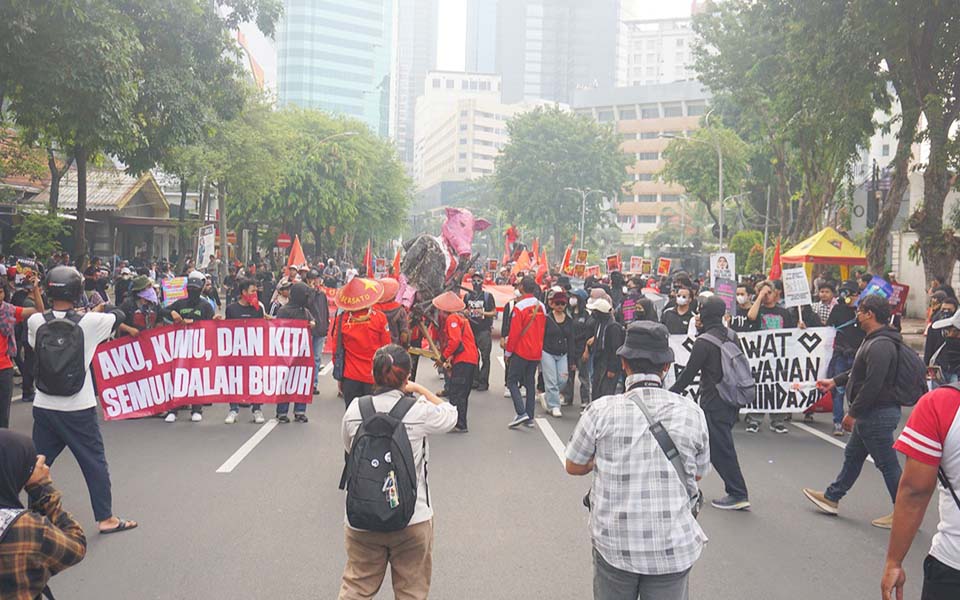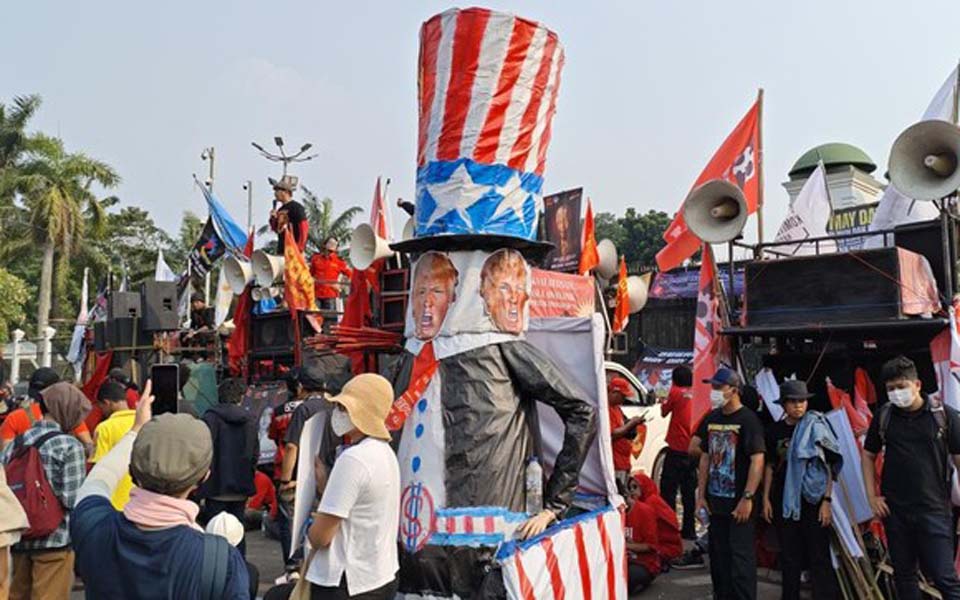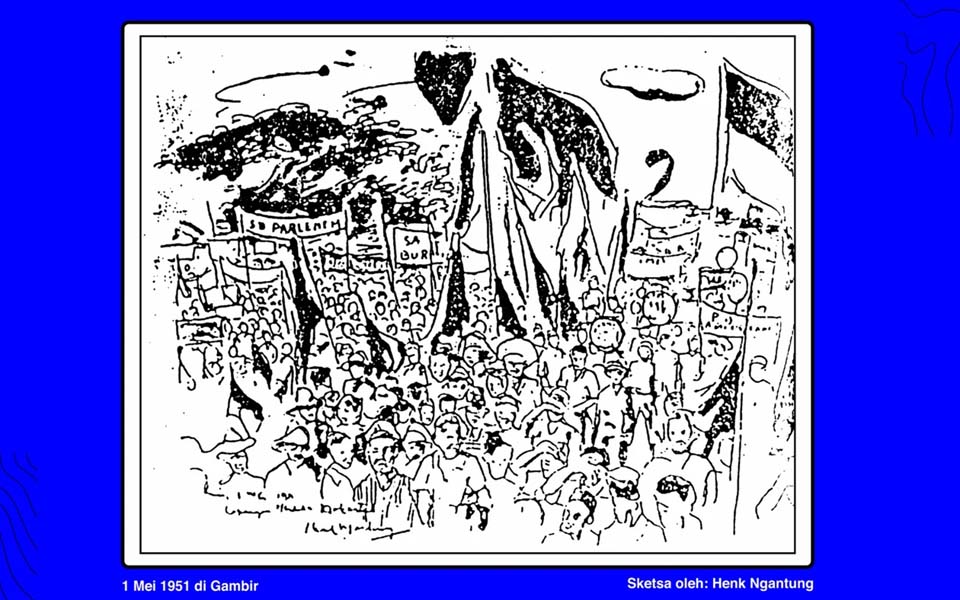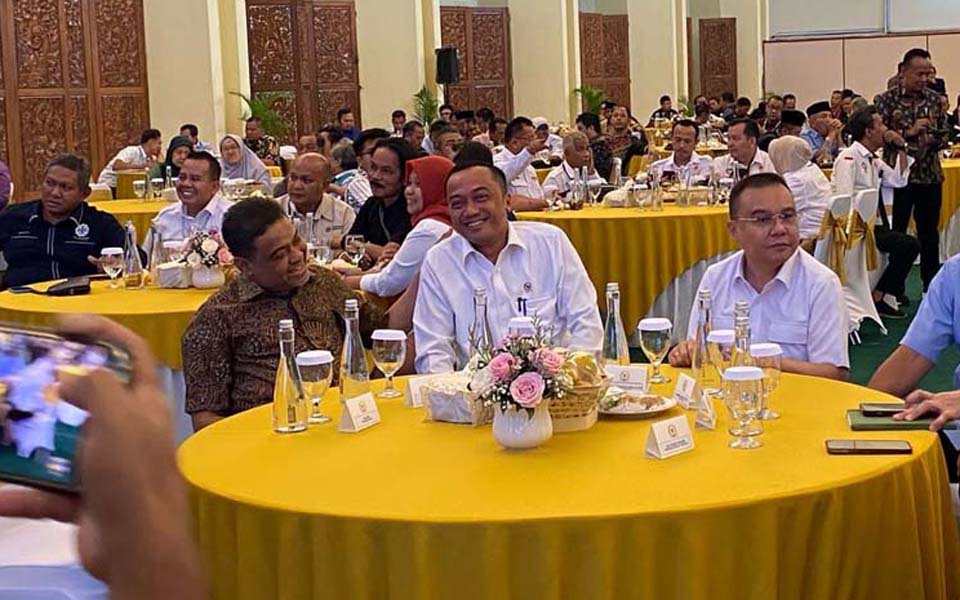Jakarta, CNN Indonesia – The Confederation of United Indonesian Workers (KPBI) says annual minimum wage increases under the President Joko “Jokowi” Widodo administration has continued to decline every year.
Jakarta KPBI coordinator Abdul Hafiz says that this has occurred because minimum wage increases have been surrendered to market mechanisms because it is now set in accordance with the national inflation rate and economic growth.
“As a result, annual wage increases have declined from 11 percent in 2016 to 8.25 percent in 2017, 8.7 percent in 2018 and 8.03 percent in 2019”, said Hafiz in an official statement received by CNN Indonesia on Sunday November 25.
On the other hand, Hafiz believes that the mechanism for setting minimum wages does not take into account increases in the daily cost of living. “As a result workers’ purchasing power is progressively declining and what has occurred is systematic impoverishment”, he said.
Hafiz also rejects the mechanism for setting wage increases and labour relations which refer to Government Regulation Number 78/2015 (PP 78/2015). According to Hafiz wages increases should be set based on the reasonable living cost index (KHL) in accordance with Law Number 13/2003 on Labour (UU 13/2003).
The setting of provincial and municipal minimum wages (UMP/UMK) however is set based on the PP 78/2015. Moreover the Labour Office has even issued a circular to regional heads threatening that if the UMP/UMK is not set based on the PP 78/2015 they could face dismissal.
“Workers are urging that the mechanism for setting wages return to the price survey (KHL) and wage councils negotiations in accordance with the UU 13/2003”, said Hafiz.
According to the UU 13/2003, minimum wage increases are based on a recommendation from regents and mayors along with wage councils after a market survey is conducted on the KHL.
Hafiz believes that the government through the PP 78 is creating fertile ground for outsourcing, contract labour and exploitative apprenticeship practices. This is making it increasingly difficult for workers to become permanent employees.
“The government has allowed market mechanisms to dominate labour relations through the PP 78/2015 on Wages and is closing its eyes to contract labour practices”, said Hafiz.
According to Hafiz, this system is unjust for workers because it is full of uncertainties. He says the system provides many ways for companies to safeguard themselves when they face difficulties but by sacrificing workers.
“Contract [labour], outsourcing and [exploitative] apprenticeships are distancing permanent workers from the majority of workers. As a result companies can carry out arbitrary sackings and obstruct the growth of trade unions”, said Hafiz.
Hafiz emphasised that giving workers the status of apprentices is often misused by companies in order to pay them less than the minimum provincial wage.
“[Their] employment status is transformed into apprentice workers and wages replaced by pocket money. Not only that, apprentice workers can be sacked at any time”, said Hafiz. (jnp/ayp)
[Translated by James Balowski. The original title of the article was Buruh Kritik Jokowi Soal Persentase Kenaikan Upah.]







